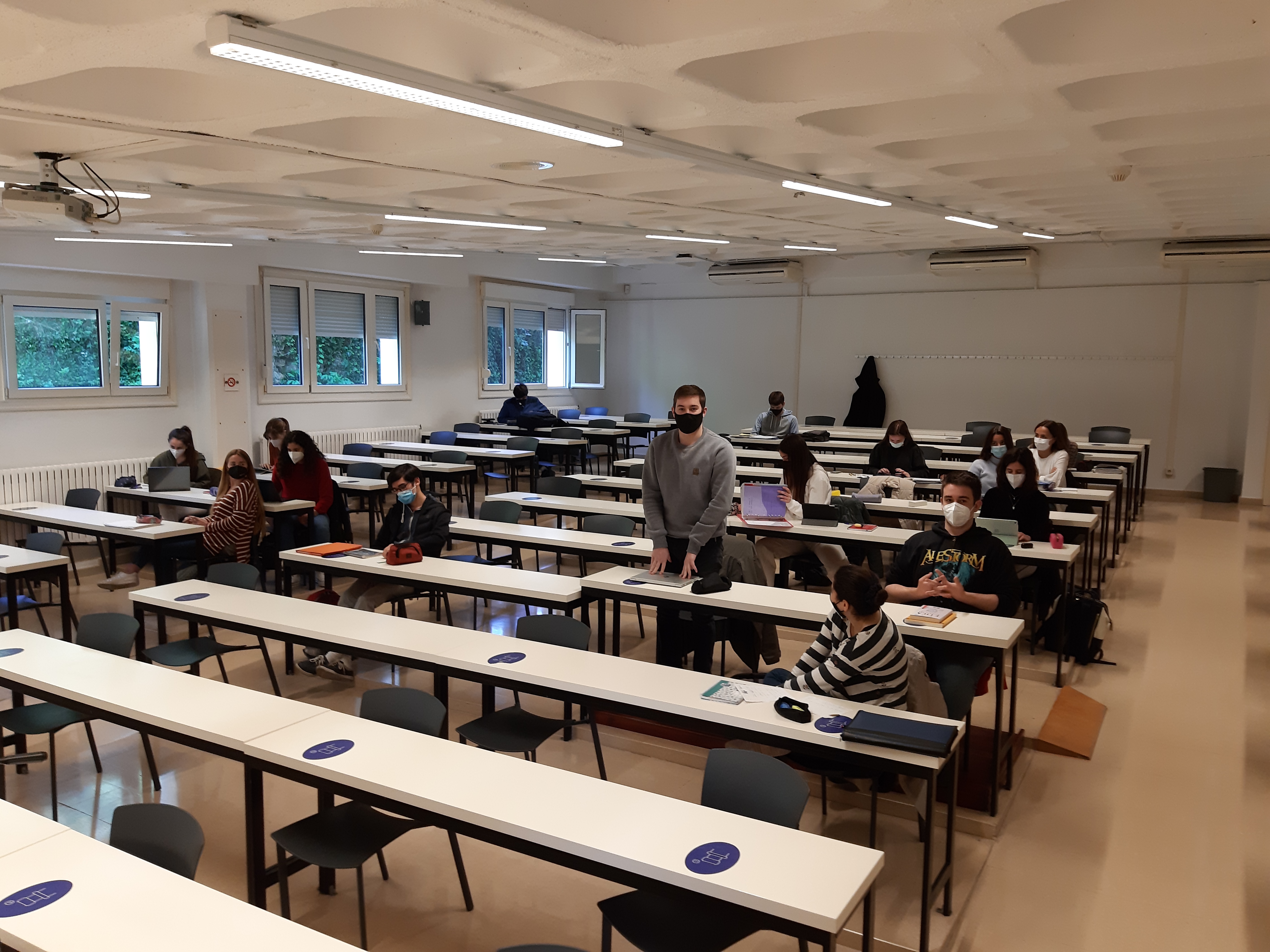News
LATEST NEWS AND EVENTS FROM THE SCHOOL OF ENGINEERING
200 ethics cases for engineers
Students of the subject Ethics Tecnun solve 200 cases they will face as engineers

PhotoCedida/Pupilshave interviewed people close to them, family and friends who could tell them about ethical problems and how they solved them.
19 | 07 | 2021
The students presented their work for inclusion in the third edition of guide "Ethics for Engineers" by Rafael Escolá and José Ignacio Murillo.
Dr. Rafael Hernández Urigüen retires this year from teaching after 25 years at the University of Navarra. First as chaplain and professor of Ethics and Introduction to Christianity at ISSA School Of Applied Management from 1996 to 2012 and, since then until today, as chaplain and professor of the same subjects and Anthropology at Tecnun.
Throughout this academic year Hernández Urigüen proposed to his Ethics students, as a final project of the subject, the research of practical cases related to Engineering to renew and expand the examples explained in the guide Ethics for Engineers, by Rafael Escolá and José Ignacio Murillo. Professor Hernández encouraged his students "to try to interview people close to them, relatives and friends who could tell them in detail about ethical problems and how they solved them".
Among those interviewed was Engineer Juan José Pérez Blanco, coordinator of the IFEMA field hospital in Madrid during the most critical moments of the pandemic. Pérez Blanco, as explained by the professor from Tecnun, He transmitted "his fascinating experience together with a video message reminding the students that, when they start their professional career as engineers, their mission statement will consist of solving people's problems". He ended his speech by emphasizing that Ethics "is undoubtedly one of the most important, if not the most important subject of their career".
At the end of semester, the students presented their 200 papers and now, says Hernández, "it remains to be assessed, together with Professor José Ignacio Murillo and EUNSA, the possibility of including the more than one hundred cases analyzed by the Ethics students in a third edition of guide".
Ainhoa Liu Leal, a student at the School, studied and resolved the case of an engineer who had to choose between "obeying the boss or following his conscience and doing what he thought was the ethically correct thing to do," as she points out.
"The superior had order the engineer to move a million-euro machine to another department without notifying those concerned in order to keep it because he was moving from official document". Liu chose honesty and communication as his solution. "Sometimes coping with a status is difficult but I think the values you have are what make you guide to cope with situations and if you forget them you fail yourself," he is sincere.
For his part, student Antxon Garmendia Aizpurua explains his work based on a real status that occurred 10 years ago, in which "the cardiac resuscitation devices were not so easy to find". The ethical dilemma presented required"deciding whether to invest in them an economic amount that could be judged unnecessary, or to assume the consequences of not having these devices in case they had to be used. Any investment had to be made with great caution, but in the end the engineer in charge decided to purchase the defibrillators, thus protecting everyone at the site where they would be used," says Garmendia.
The engineering student asked himself many questions before making the decision. "In the event of a heart attack occurring at the center and not having adequate means, to what extent would the engineer be liable? If so, would he be the only one, or would it also affect the administration, which regulates all the centers, for not adequately insuring its members? Looking at it from a more generic point of view, what responsibility does the individual have for his environment and the group? Where does this commitment begin and where does it end?" he asked.
Ander Díaz Gil Negrete stresses that he has learned the importance of objectivity in cases where he has to judge or give an opinion on a case topic. "In my case, a company that had been collaborating for years with a research center was faced with a dispute with a client and requested the collaboration of this center for an expert to evaluate the case. However, the report would be prepared by the company itself and the professional would only have to sign," explains the student. "If this is done, there would be a lack of objectivity. The center could be interested in helping the company and the judicial procedure requires the expert in charge to be totally impartial in the matter," he concludes.
The students agree that "the study of these cases has been very useful to appreciate the complexity of decision-making, the responsibility involved in making decisions and the enormous value of ethics in order to act in the best possible way" .
